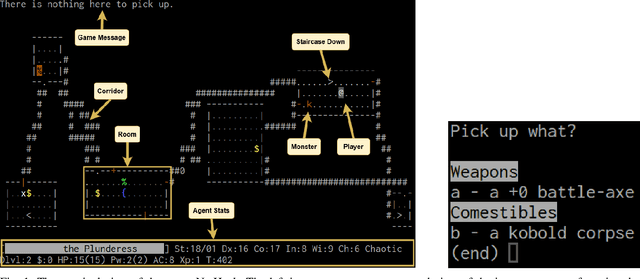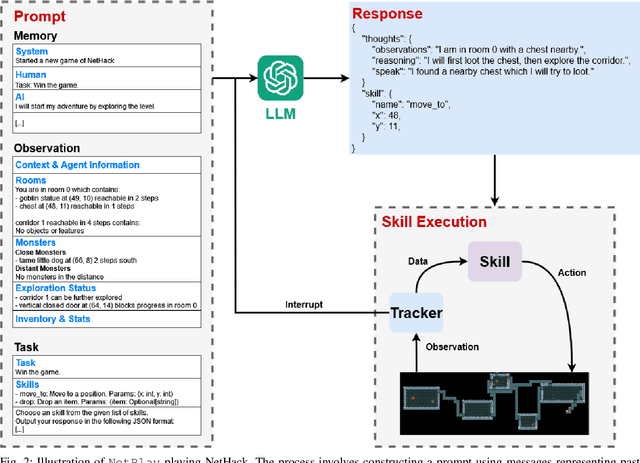Playing NetHack with LLMs: Potential & Limitations as Zero-Shot Agents
Paper and Code
Mar 01, 2024



Large Language Models (LLMs) have shown great success as high-level planners for zero-shot game-playing agents. However, these agents are primarily evaluated on Minecraft, where long-term planning is relatively straightforward. In contrast, agents tested in dynamic robot environments face limitations due to simplistic environments with only a few objects and interactions. To fill this gap in the literature, we present NetPlay, the first LLM-powered zero-shot agent for the challenging roguelike NetHack. NetHack is a particularly challenging environment due to its diverse set of items and monsters, complex interactions, and many ways to die. NetPlay uses an architecture designed for dynamic robot environments, modified for NetHack. Like previous approaches, it prompts the LLM to choose from predefined skills and tracks past interactions to enhance decision-making. Given NetHack's unpredictable nature, NetPlay detects important game events to interrupt running skills, enabling it to react to unforeseen circumstances. While NetPlay demonstrates considerable flexibility and proficiency in interacting with NetHack's mechanics, it struggles with ambiguous task descriptions and a lack of explicit feedback. Our findings demonstrate that NetPlay performs best with detailed context information, indicating the necessity for dynamic methods in supplying context information for complex games such as NetHack.
 Add to Chrome
Add to Chrome Add to Firefox
Add to Firefox Add to Edge
Add to Edge